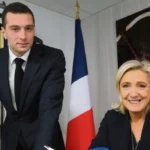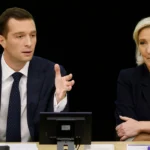Last Saturday, October 7, the Hamas terrorist organization, which controls the Gaza Strip, launched an offensive on Israel. This attack, then the Israeli response, left more than a thousand dead and revived the specter of decades of unresolved conflict between Israel and Palestine. A conflict on which Europe has always struggled to take a united position.
If European leaders have unanimously condemned the Hamas attacks on Israeli territory, the responses to them are divided. Monday October 9, the Hungarian European Commissioner went it alone by announcing to everyone’s surprise – including within the European executive – the suspension of all payments to Palestine. This message reflects the fear that European aid will be diverted to finance the terrorist activities of Hamas. This group has gradually established its de facto authority in the territory of Gaza, supplanting the Palestinian Authority resulting from the Oslo Accords of 1993 and led by Mahmoud Abbas. This aid, totaling 691 million euros, is of considerable importance in this region: the European Union is the leading provider of funds. Their suspension would therefore have presaged a catastrophe for the Palestinian people.
This announcement having been made without consultation or prior agreement, the 27 member states have in turn expressed their opposition. It was the head of European diplomacy, Josep Borrell, who put an end to this confusion before it turned into a diplomatic crisis. He condemns an unjust “collective punishment” which would target Hamas and the Palestinian population indiscriminately. He finally confirmed the continuation of humanitarian financial aid to the Palestinian people following the extraordinary council of foreign ministers that he convened on October 10. The EU representative for foreign affairs and security policy also affirmed that the EU must continue to ensure that this aid benefits the population and not the terrorist activities of Hamas.
This mess at the highest level of the Commission is quite symptomatic of the difficulty the European Union has in taking a coordinated position on the subject. The EU has multiple economic interests in the region. It obtains its energy, and particularly its gas, from Israel, of which it is also its largest trading partner. But beyond commercial relations, diplomatic ties are more changeable. The far-right government led by Benjamin Netanyahu and its clearly stated desire to conquer the Palestinian territories have contributed to distancing itself from the EU over the past ten years. A solution seemed to emerge in June 2022, when Yair Lapid became Prime Minister of Israel. Dialogue with the European Union then resumed, to the great dismay of NGOs and European governments, who viewed this rapprochement unfavorably. With the return of Benjamin Netanyahu to power, these efforts were ultimately reduced to nothing.
Despite the difficulties in agreeing on the responses to this conflict, the 27 found a consensus on the promotion of respect for international law. The Union has endeavored to reiterate, since its first positions, the importance of respecting the two central norms of this confrontation: the right of peoples to self-determination on the Palestinian side and the right to security of the State of Israel.
This article is originally published on .taurillon.org







